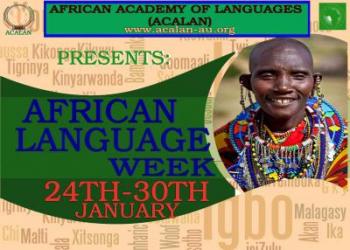By LINDA PONA
The African Diaspora
The African Union’s Academy of Languages (ACALAN-AU) held the African Languages Week from 24 to 30 January 2023 across different African countries. The week was an opportunity to showcase and promote African Languages and cultures across Africa and the African Diaspora. Launched in July 2022 in Ouagadougou, Burkina Faso, the initiative was set to promote and empower African languages across different societies.
Amazwi Museum celebrated the week on Monday, 30 January 2023 by inviting South African literary icons and recipients of the South African Literary Awards (SALA).
“We have to celebrate African languages alongside colonial languages and promote multilingualism,” said Zongezile Matshoba, the Amazwi Museum Education and Public Programme manager.
Idabi lababhali
Eastern Cape Department of Sports, Recreation and Arts and Culture (DSRAC) representative, Siyabulela Makwethu, offered support for the initiative and said that the department is passionate about language-related issues. He added that they would do their best to celebrate and support African languages. He added, however, that people resisted using African languages but that it is necessary for future generations.
“We are in Africa; we owe our children the right to their languages,” said Makwethu.
Imbizo Art Gallery publisher Mxolisi Nyezwa, added that they are grateful for indigenous language writers’ efforts despite the obstacles they have faced.
“Siyabulela ngokuqhubekeka ngelidabi lokubhala. We are not just writing, but we are writing our hearts and the things that have caused so many divisions and setbacks to the progress of humanity,” he said.
Why the SALA awards?
During the celebrations, SALA award winners and writers Ayanda Billie, Madoda Ndlakuse, Yamkela Ntwalana and Mzolisi Mavimbela were asked why they entered the SALA awards.
Some writers were motivated by their publishers, while others felt more at ease writing in their mother tongue. More importantly, Mavimbele emphasised the importance of decolonisation. “We must emancipate our mental slavery,” he said. After all, the growth of a language depends on its writers.


